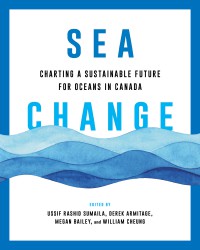Large Changes in Canada’s Oceans and Their Impacts on Ecosystems and Fisheries

Book Chapter 4: Canada's marine environments are undergoing large-scale changes defined by shifts and trends in their mean physical or chemical states over decadal time scales or large spatial scales (ocean basin–wide). These changes affect biological communities and human societies through impacts on marine ecosystems, subsistence practices, especially those of Indigenous Canadians, commercial and recreational fisheries, ecotourism, and other ecosystem services. Climate models and regional downscaling approaches are used to assess these trends and projections. Recent national assessments for Canada's three oceans highlight increased atmospheric and ocean warming (especially in the Arctic), modified ocean stratification affecting the nutrient supply for marine species, regionally varying changes in primary production, decreasing oxygen levels, advancing ocean acidification (OA) (most prominently in the Arctic), decreasing sea-ice extent and thickness, modified sea-ice characteristics and storm waves, and increasing climate change-related extreme events.
